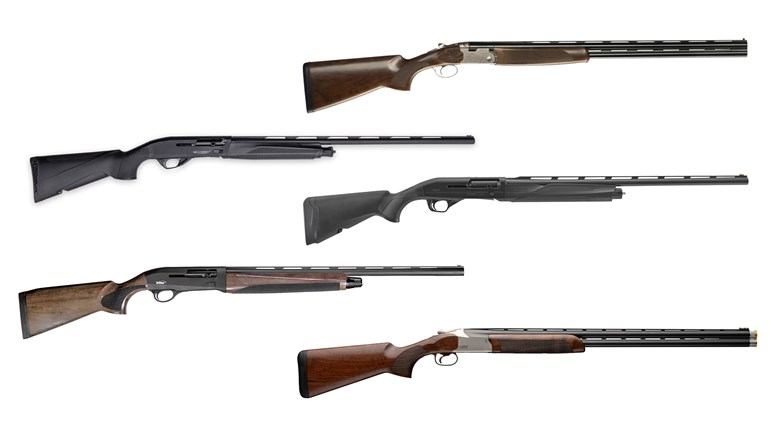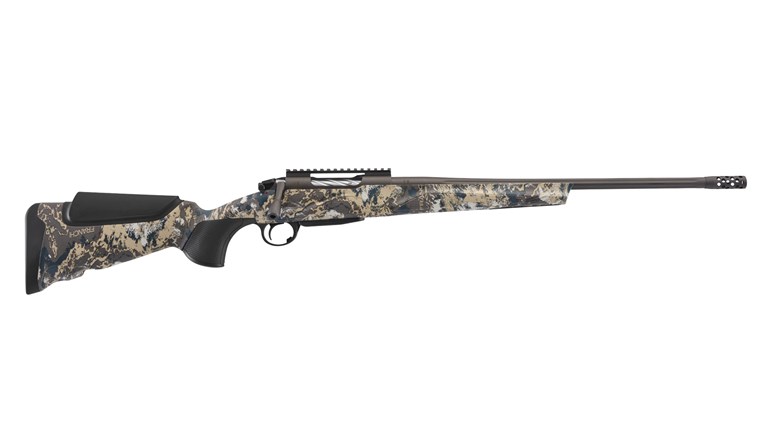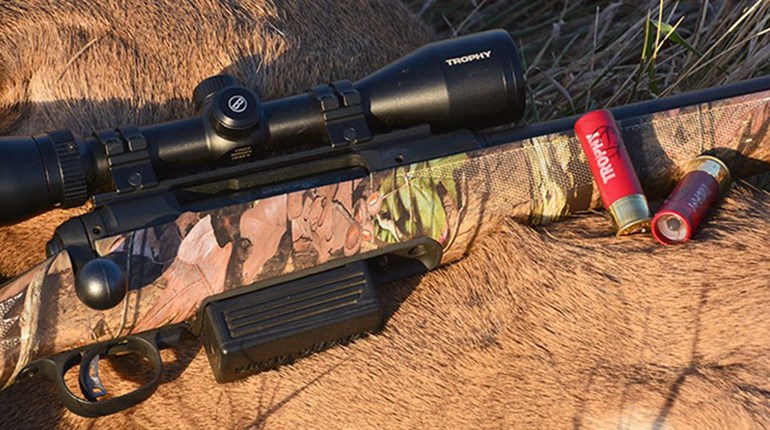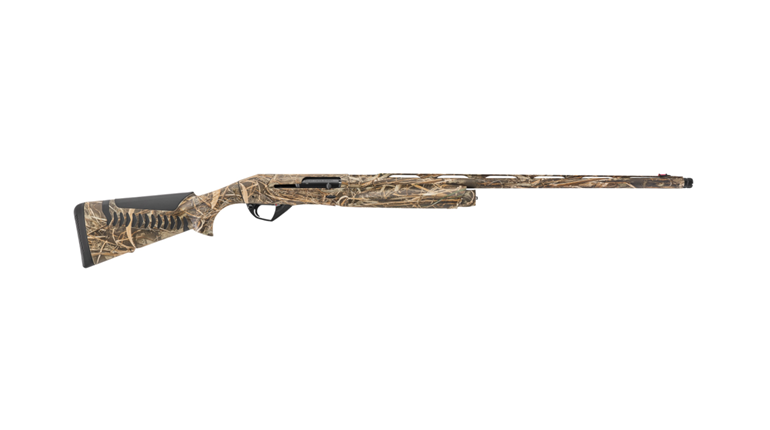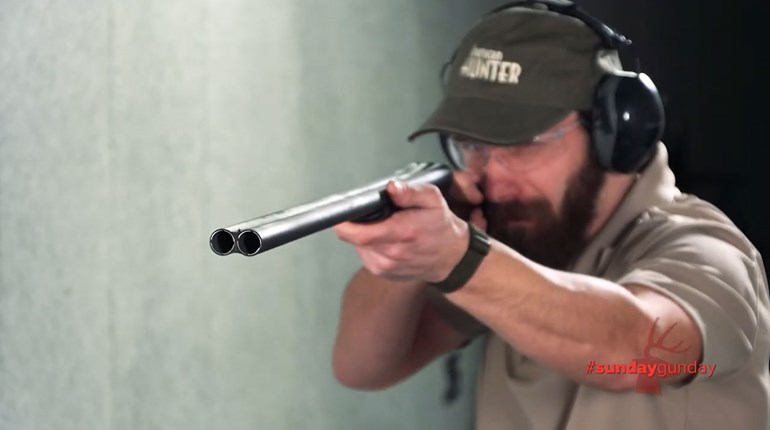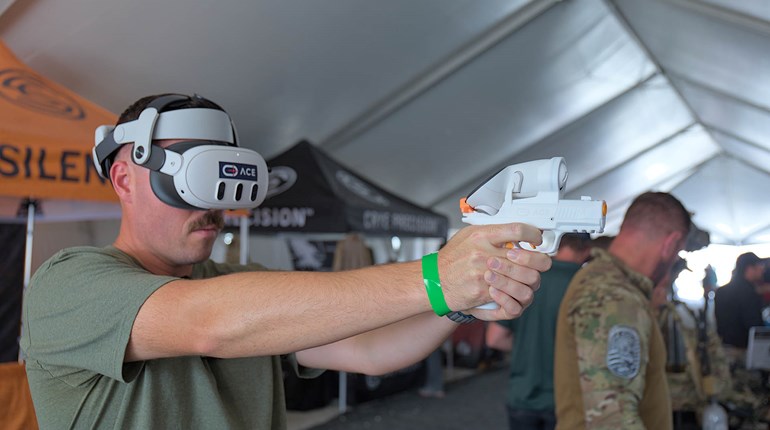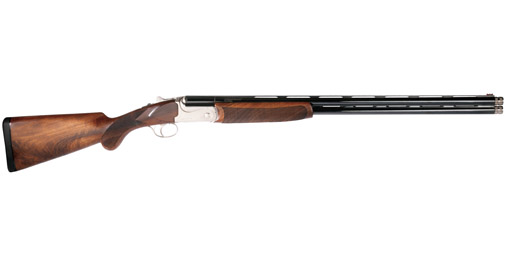
A common question NRA staff receives from members and friends is: “What ____ do you recommend?” Gun or gear, it's a difficult question because after a level of quality is met, it comes down to brand perception—how it seems—and mainly to personal opinion—how it feels. Sure we can adapt and use anything decently with practice, but to realize its potential it should feel good. Ted Williams batted .344 for his career. He always used a 35-inch, 33-ounce bat. Evidently it felt right to him.
An ill-fitting rifle can suffice because riflery is a more mechanical endeavor in which the body can be contorted around the stock to align the eye with the scope, at which point good shooting becomes a mental game. This can be proven by shooting left-handed, having never practiced it. Conversely, a wingshooting gun should come up instinctively and meld into the shoulder and cheek so that the head is level and vision is not blocked but aligned down the rib. The stock should allow the hands and body to point and flow in harmony, and the gun should be balanced so it rises linearly to allow the buttstock to touch the shoulder and cheek at the same time.
Not being a pipe-smoking master of shotgun fit, however, I predict whether I can hit a flying bird with a strange gun based on its feel. To do this I close my eyes, shoulder it naturally then open them. If I’m peering down onto its barrel, seeing mainly the back of the receiver, or looking slightly to one side, I avoid it like Chicago. But even if I luck into one that seems to fit, it doesn’t necessarily mean it’s perfect. So I shoot it to verify it patterns where I look.
To answer the question, I recommend a Beretta over/under because it works for me (it’s very likely that I adapted to my old BL4 rather than it happened to fit me perfectly) but for every Beretta fan there’s a Citori or Red Label lover. Either way, there’s a $2,200 problem. No gun can imbue the hands with warm fuzzies if it’s still in the store. In the past decade there’s been little middle ground—either it's $600 and swings like a claw hammer, or it's $2,200—until recently. Franchi’s new Instinct line is an Italian-made 12- or 20-gauge over/under shotgun that is well built, feels good and costs under $1,200.
Franchi shotguns are made in Brescia, Italy, down the street from the Beretta factory. Beretta Holdings owns Franchi—as well as all the brands under the Benelli USA umbrella—but it’s the guys at Benelli USA who import and therefore influence what Franchi sells here. Benelli’s Joe Coogan (a field editor of this magazine) has likely hunted more birds in more places than nearly anyone, so he was consulted on the project. He wanted a pure bird gun—one that a grouse or quail hunter can carry all day, yet snap into action instantly. Benelli’s Steve McKelvain (a former NRA employee) studied his favorite shotguns—like the old Browning Superposed—and defined what characteristics make them come alive. He sketched ideas, received prototypes from Franchi engineers in Urbino, bickered about engraving styles and tweaked it until satisfied. Then he knocked on doors in Gun Valley looking for a firm that could build them. But how to build a lively shotgun is no secret. Many firms do it, just ask Beretta, Perazzi or others whose guns cost more than college educations. So the real challenge was in building the gun affordably.
In essence, the Instinct is a four-gun line of over/under shotguns, the L and SL versions each in 12- and 20-gauge. The SL has an aluminum receiver that’s brushed to a shiny finish. The receiver material lightens the 20-gauge gun to an incredible 5 pounds, 10 ounces. It is fortified by a titanium insert in its face. The cold blued, monobloc barrels hinge on replaceable trunnions. Automatic ejectors function when the gun is broken via its Deeley and Edge-style forearm. Its exterior is scalloped to further reduce weight and provide some style. Laser engraving on its hinge cap and belly is light. The L model is mechanically identical, except it’s a pound heavier as mandated by its steel receiver. I prefer the L because I love the color casehardened finish and a real-world price around $1,000.
Barrels are available in 26 and 28 inches. The fore-ends are beavertail, a design I prefer because I extend my index finger straight down the barrel. Schnabel fore-ends do not allow this comfortably, and although it can be overcome, a good-fitting shotgun should fit your style, not vice-versa. Checkering is very functional on the slim fore-end and looks great, as does the engraved, flush fitting latch. My test gun’s AA walnut stock was rich in grain and outstanding. Since they don’t make it with an English stock, I like the Prince of Wales grip much more than a deep pistol grip, and it’s a good compromise. The Instinct’s trigger is mechanical, and true to its bird-gun roots, both its ejectors and its barrel-selecting safety are automatic. In over 500 rounds shot through it, I did not experience a malfunction. Mechanically, the Instinct is sound.
The gun was made to be feathery light and there is no way of avoiding the physics of recoil, although there are ways to mitigate it. The Instinct features a gimmickless recoil pad that is effective yet snag-resistant. Does the gun kick less than my 20-gauge, gas-operated 1100? Of course not, but I was surprised at the little recoil this 5-pound gun transmits. In shooting hundreds of rounds over a couple days, recoil wasn’t an issue.
As for negatives, while the trigger pull of a shotgun is not overly important, my test gun exhibited some creep. Secondly, the Instinct’s wood-to-metal fit is tight, but it's proud, which is less expensive than flush fit. Simply put, this is where the $2,000-plus guns shine. Lastly, one feature that’s perplexing was why Franchi chose to put its extended choke tubes on the lighter weight SL, and the flush fitting tubes on the L. I'd think the slightly heavier L would be the gun to use, if either, for clay games, and so the extended tubes would make more sense. But the extended, chrome tubes do look good with the polished receiver.
When most people pick up a super-lightweight gun they are tickled at the sensation of something weighing less than their brain anticipates, and they immediately exhale a “Wow, that feels good,” whistle. There are waterfowlers and clay shooters out there who prefer a heavy gun with long barrels who say it swings better. But like most upland bird hunters, I’m not a swing shooter. We’re snap shooters, and in the grouse woods especially, a nimble gun that’s carried 99 percent of the time is a blessing. It needs to spring reflexively when a bird flushes then disappears in two seconds. To my hands, the Instinct does these things.
So now if someone asks me to recommend an over/under hunting gun, and they have around $1,000 to spend, I say Franchi Instinct. It’s a great gun for the green. And if you can’t hit with it, well, perhaps you should consider what Ted Williams said when asked about his bat: “It ain’t the arrow; it’s the Indian.”
Technical Specifications:
Type: over/under shotgun
Gauge/Chamber: 12, 3"; 20, 3"
Trigger: single-selective; inertia; 5 lbs., 3 ozs.
Barrel: 26", 28"
Sights: red fiber-optic front bead
Overall Length: 42 7/8" (26")
Weight: L 6 lbs., 8 ozs. (12-ga.); SL 5 lbs., 10 ozs. (12-ga.)
Metal Finish: L case-colored; SL brushed
Accessories: plastic box, 3 choke tubes (IC, M, F)
MSRP: L $1,149; SL $1,349












